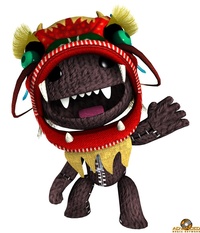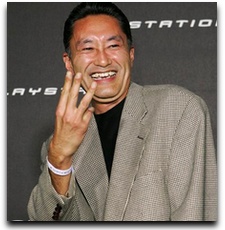Gaming is mainstream and growing, this is obvious to most video game enthusiasts. Even Jack Thompson has failed in taking down the industry in his efforts on video game violence and general FUD. In order to survive in a mainstream environment publishers and developers are going to target a broad demographic to make them as much money as possible.
 The game industry, like other entertainment avenues, is a risky business in which publishers have to pick titles they “predict” will do well in the market while passing on other “risky” propositions. While a the good ol’ shooter title will break sales records, the market cannot rely on one genre to carry the business especially considering many of these titles are forgotten within two months from launch. Publishers are going to be forced in expanding their reach to “family games” in order to finance new blockbuster titles.
The game industry, like other entertainment avenues, is a risky business in which publishers have to pick titles they “predict” will do well in the market while passing on other “risky” propositions. While a the good ol’ shooter title will break sales records, the market cannot rely on one genre to carry the business especially considering many of these titles are forgotten within two months from launch. Publishers are going to be forced in expanding their reach to “family games” in order to finance new blockbuster titles.
Enter family gaming.
 The idea of designing a “family” game isn’t new to our industry, as a matter of fact, it’s one of the oldest cornerstones of video game entertainment. Pong, Centipede, Pac-Man, Space Invaders and many other classic titles were no doubt playable by the entire family, but things have changed. We’ve evolved from hit titles like Donkey Kong to hit titles like Halo. We migrated from 2D gaming to full 3D adventures and pixel graphics to pixel shaders, but where do we go next?
The idea of designing a “family” game isn’t new to our industry, as a matter of fact, it’s one of the oldest cornerstones of video game entertainment. Pong, Centipede, Pac-Man, Space Invaders and many other classic titles were no doubt playable by the entire family, but things have changed. We’ve evolved from hit titles like Donkey Kong to hit titles like Halo. We migrated from 2D gaming to full 3D adventures and pixel graphics to pixel shaders, but where do we go next?
Nintendo has the correct vision for the next stage of the video game industry and it involves bringing the entire family into gaming. It’s mainstream, right? Mainstream isn’t your dad playing a video game in the basement after the kids go to bed, it’s replacing Sorry with Spore and bringing out Wii Sports and having little family tournaments. We must respect what the big titles have done for the industry in merchandising, novels, sequels and spin-offs but we should not rely on them to carry us into the next generation of gaming.
While Nintendo’s vision provides evidence with cash in the bank, they’re lacking the library of games to keep the console living and breathing six years down the road. Novelty? Call it what you want, it got your grandmother gaming! The future isn’t all about Nintendo, however Nintendo has proven to everyone in the industry that games involving the entire family are making money and doing it quickly.
 Soon we’ll start seeing more spouses changing their tune from, “games are stupid” to “let me try.” As one of our podcast hosts found in episode 95 of our Gaming Podcast during his review of LittleBigPlanet, his wife pulled the controller from his hands to give the game a try and… liked it. As member ATC 1982 found when trying the A Kingdom for Keflings demo, the family might actually like the game which could, in turn, cause him to purchase it.
Soon we’ll start seeing more spouses changing their tune from, “games are stupid” to “let me try.” As one of our podcast hosts found in episode 95 of our Gaming Podcast during his review of LittleBigPlanet, his wife pulled the controller from his hands to give the game a try and… liked it. As member ATC 1982 found when trying the A Kingdom for Keflings demo, the family might actually like the game which could, in turn, cause him to purchase it.
“The new OXM disc has the demo and I am surprised by it. With all the new console games I might give my console games a rest and pick up this arcade game. Even though your a giant managing people and working mostly. For me it was addicting and my daughter was enjoying it as well and now wants me to build her a princess castle. The wife likes the music, but is unsure. With the aid of the avatar system in play this might be one game that will be a sleeper hit.” (gamingpodcast.net/forum)
Let’s face it, the average gamer is a male out in the 32 to 34 year old demographic and probably has a few kids and a wife. Many folks want to share their passion and experiences for their hobbies with their family, providing games to bridge this gap is a possible solution. Gamer dads will find themselves spending money on a game they might normally pass up just to experience their childhood activities with their family.
The casual games industry is growing rapidly and captures a broad demographic, the console industry continues to strive for huge sales records and a means to producing the best content for their respective consoles. Why sell a blockbuster hit game like GTA IV to a single member of a family when you can sell a less costly game to their entire family? The sales figures for Bejeweled smoke those of GTA because they can sell the title to more individuals without the Mature Audience (MA) restriction.
Will this mark the end of “hardcore” games and reinvigorate less violent titles? Hardly. In many ways, a video game that breaks into the household and grips the whole family may be a “gateway game” to other larger titles down the line. Many family members may never progress to hardcore titles at all, but this just strengthens other video game markets and allows them to flourish along with our core audiences.
 Imagine a world where video game dads and moms can play games with their entire family across all competing consoles, PC’s and the Macintosh. When the kids go to bed, they can power off their family games and crack into a few first person shooters, in-depth RPGs or subscription based MMO.
Imagine a world where video game dads and moms can play games with their entire family across all competing consoles, PC’s and the Macintosh. When the kids go to bed, they can power off their family games and crack into a few first person shooters, in-depth RPGs or subscription based MMO.
Designing games for the entire family will financially stabilize some of these publishers that can’t figure out why gamers don’t want their eight sequel or a crappy licensed movie game. This financial stability will allow them to invest more money into block buster Mature Audiences only titles for the “hardcore gamer” and keep their share holders and investors smiling.

 This year many gamers will open new consoles for the holidays and many of those same gamers are going bring their console “live” on Xbox Live the same day. Traditionally we’ve found Xbox Live falls under the weight of the holiday rush much like Apple’s iTunes. Will we repeat history again?
This year many gamers will open new consoles for the holidays and many of those same gamers are going bring their console “live” on Xbox Live the same day. Traditionally we’ve found Xbox Live falls under the weight of the holiday rush much like Apple’s iTunes. Will we repeat history again? “Last time I checked, they’ve never had a console that’s been on the market for more than four or five years and we’ve committed to a ten year life cycle, so you do the math…,” he says. He goes on to state that the Xbox 360 won’t have a larger install base by the end of their 10-year plan has been completed, “unless things go really bad.”
“Last time I checked, they’ve never had a console that’s been on the market for more than four or five years and we’ve committed to a ten year life cycle, so you do the math…,” he says. He goes on to state that the Xbox 360 won’t have a larger install base by the end of their 10-year plan has been completed, “unless things go really bad.”